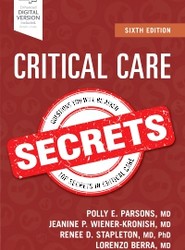Latest additions
and the newest arrivals
Recently viewed
and related books
Browsed right now
what the world is reading
Medical Reading, Writing, Statistics
and Presenting Skills
Hot books
and best sellers
Pocket Atlas of Sectional Anatomy, Vol. II: Thorax, Heart, Abdomen and Pelvis
Published September, 2013
By Torsten Bert Moeller, Emil Reif and Torsten Bert Moller
Published September, 2013
By Torsten Bert Moeller, Emil Reif and Torsten Bert Moller
€46.97
Pocket Atlas of Sectional Anatomy, Volume III: Spine, Extremities, Joints
Published December, 2016
By Torsten Bert Moeller, Emil Reif and Torsten Bert Moller
Published December, 2016
By Torsten Bert Moeller, Emil Reif and Torsten Bert Moller
€51.85
Facial Volumization
Published October, 2017
By Jerome P. Lamb, Christopher Surek and Christopher Chase Surek
Published October, 2017
By Jerome P. Lamb, Christopher Surek and Christopher Chase Surek
€177.86
€145.79
Critical Care Secrets
Published April, 2018
By Polly E. Parsons, Jeanine P. Wiener-Kronish, Renee D. Stapleton and Lorenzo Berra
Published April, 2018
By Polly E. Parsons, Jeanine P. Wiener-Kronish, Renee D. Stapleton and Lorenzo Berra
€46.35
Cosmetic Injection Techniques
Published March, 2019
By Theda Kontis, Theda C Kontis and Victor G. Lacombe
Published March, 2019
By Theda Kontis, Theda C Kontis and Victor G. Lacombe
€109.19
Facial Danger Zones
Published December, 2019
By Rod J. Rohrich, E. Victor Ross, James M. Stuzin, Erez Dayan, Rod Rohrich, James Stuzin and Edward Victor Ross
Published December, 2019
By Rod J. Rohrich, E. Victor Ross, James M. Stuzin, Erez Dayan, Rod Rohrich, James Stuzin and Edward Victor Ross
€140.91
Point of Care Ultrasound
Published June, 2019
By Nilam J Soni, Robert Arntfield, Pierre Daniel Kory and Pierre Kory
Published June, 2019
By Nilam J Soni, Robert Arntfield, Pierre Daniel Kory and Pierre Kory
€101.25
Textbook of Critical Care
Published February, 2023
By Rinaldo Bellomo, Jean-Louis Vincent, Frederick A. Moore, John J. Marini and John Marini
Published February, 2023
By Rinaldo Bellomo, Jean-Louis Vincent, Frederick A. Moore, John J. Marini and John Marini
€275.71
Point-of-Care Ultrasound in Critical Care
Published August, 2022
By Luke Flower and Pradeep Madhivathanan
Published August, 2022
By Luke Flower and Pradeep Madhivathanan
€48.79













